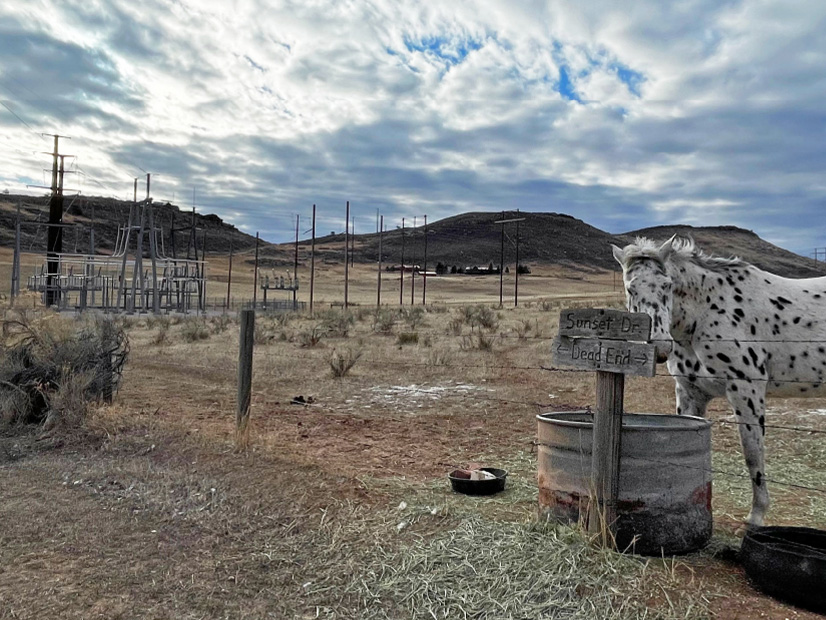FERC ordered Tri-State Generation and Transmission Association to rework two filings involving departing members in orders issued March 29.
One order was a specific agreement on United Power’s departure from the wholesale member-owned cooperative (ER24-1145), while the other regarded what costs future departing members would have to cover (ER21-2818).
Tri-State provides wholesale power and transmission service to 42 members in Colorado, Nebraska, New Mexico and Wyoming. United is a Colorado co-op that has taken service from Tri-State under a wholesale electric service contract (WESC), but it gave official notice it wanted to leave in April 2022, to be effective May 1, 2024.
The broader departure fee case dates back to September 2021, when Tri-State first filed revisions, which were set for hearings and led to another order in December 2023. (See FERC Picks ‘Balance Sheet Approach’ Exit Fee for Tri-State Members.) The order issued last week directs another compliance filing to fix some aspects of the proposed exit fee.
United told FERC that the latest withdrawal proposal from Tri-State would charge it $627.7 million, while it calculated a fee of $464.5 million. The largest reason for the $163 million gap is the $148 million United said Tri-State failed to account for in the co-op purchase of non-networked transmission and distribution facilities.
FERC found the arguments in the case from both United and Tri-State would be better addressed in the broader compliance case but accepted the withdrawal agreement subject to some additional issues being resolved.
The $627.7 million fee is based on a contract termination penalty of $709.5 million, minus $81.9 million in patronage capital that United had put up but no longer will be used now that it is leaving. Tri-State will have to file an updated amount with the right patronage capital amount and regulatory liabilities credit, which are being developed in the ongoing ER21-2818 docket.
The commission accepted the withdrawal agreement, subject to a compliance filing due in 14 days, which will allow United to leave Tri-State’s service.
Tri-State also will have to make a compliance filing on the broader contract termination payment (CTP) rules within 14 days, but those rules will apply only in total to firms that leave the co-op’s service after 2025. FERC also set up hearing and settlement procedures for some aspects of the rule.
FERC accepted Tri-State’s proposal to provide each member with a potential CTP every year that reflects their pro rata allocation of power purchase agreements in addition to their pro rata share of its debt. Tri-State also won approval for its proposal to enter into withdrawal negotiations within 180 days of getting a request, but the association will have to make clear that none of those procedures are required by entities leaving this year or next, which already have started to withdraw.
The commission found that Tri-State partly complied with its requirements to pay back departing members’ patronage capital, either as a discounted lump sum or over time as it is retired in the normal course of business. But its proposal failed to account for any accrual or retirement of patronage capital that occurs between when a member signals a notice to leave and actually leaves service.
Tri-State has members in both the Eastern and Western interconnections, and while those out West likely face higher CTPs than patronage capital amounts, that is not the case in the East. Tri-State proposed never having to pay a departing member if its patronage capital were higher than its CTP, but FERC ordered it on compliance to pay out a lump sum should such firms request it.
Tri-State also was required to change its transmission crediting mechanism for departing members, basing it on their pro rata share of the full amount of its transmission debt and paying them back with full interest.
The compliance filing also will have to change how PPAs are treated, as Tri-State will have to show departing members their pro rata share of system capacity and associated energy when it proposes their buyout amount. That will be earlier than Tri-State initially proposed, which FERC said would help departing members make their decision.
Tri-State also will have to update its proposed CTP to properly reflect costs of serving customers in the Western Interconnection to reflect the impact of any members departing before another, so that a departing member does not have to pay for debt Tri-State collected in an earlier CTP.


